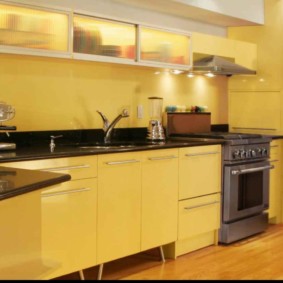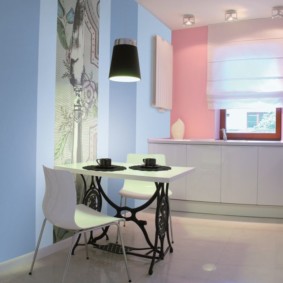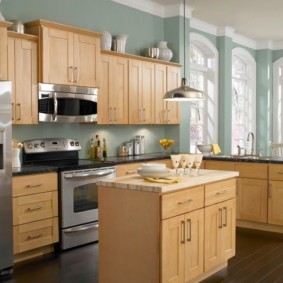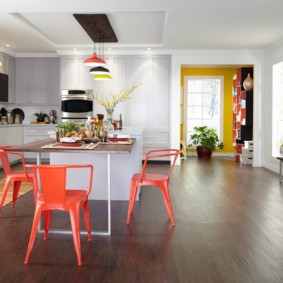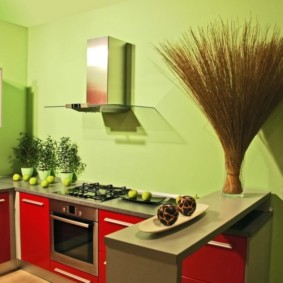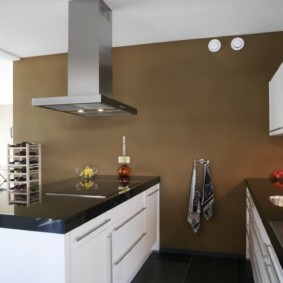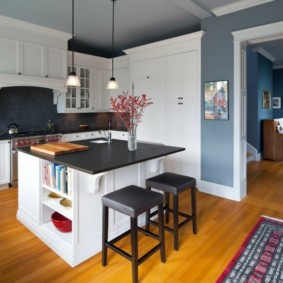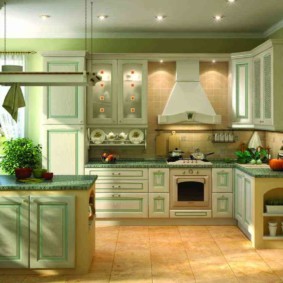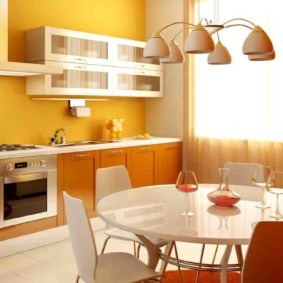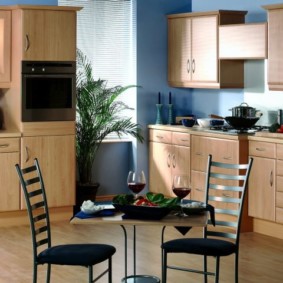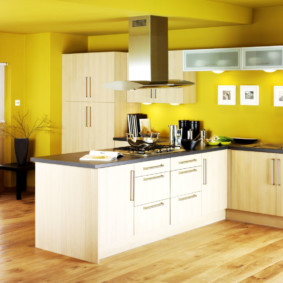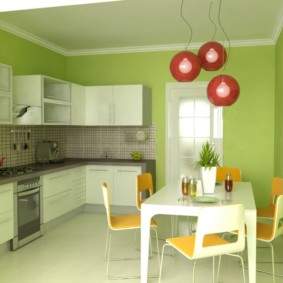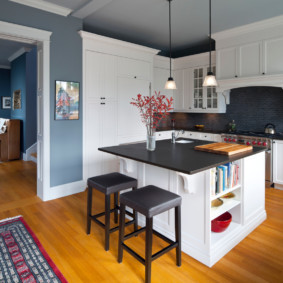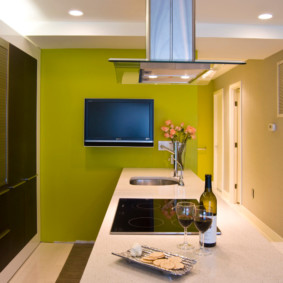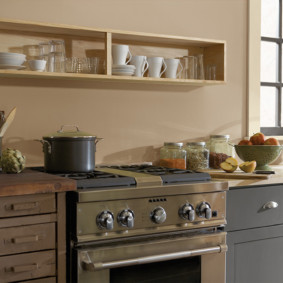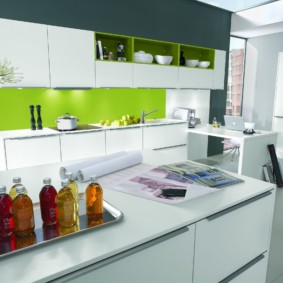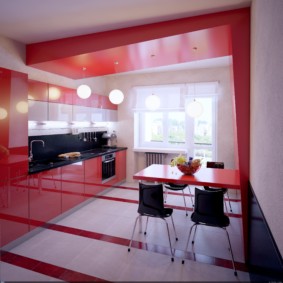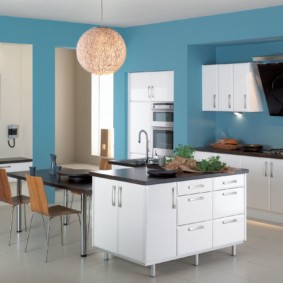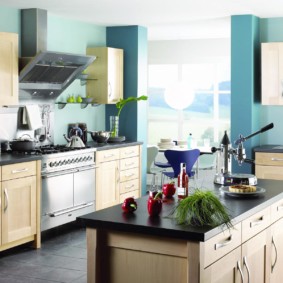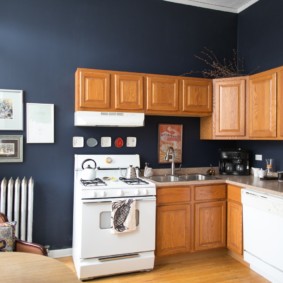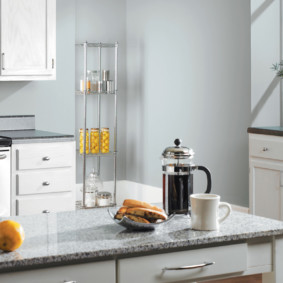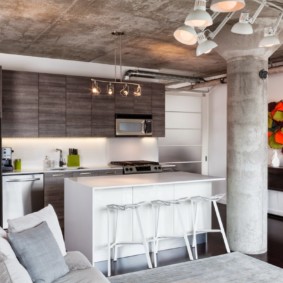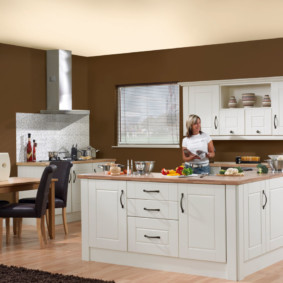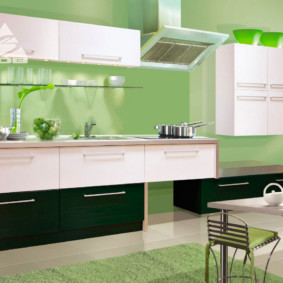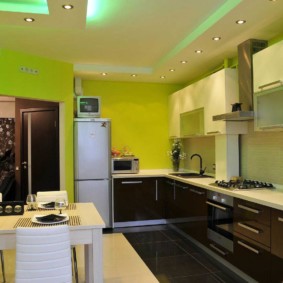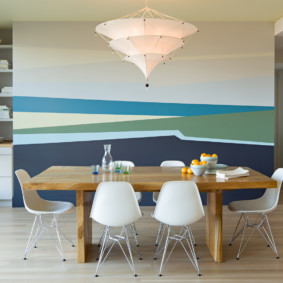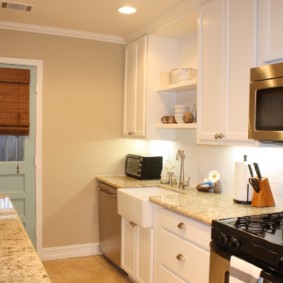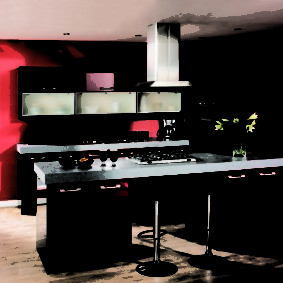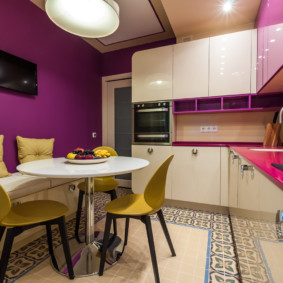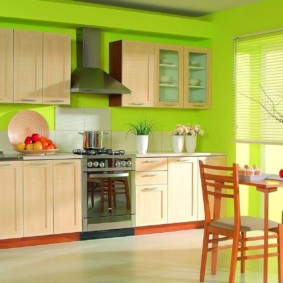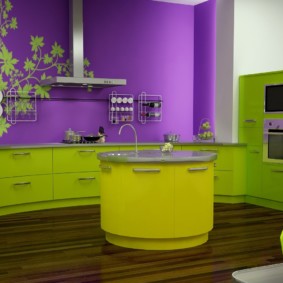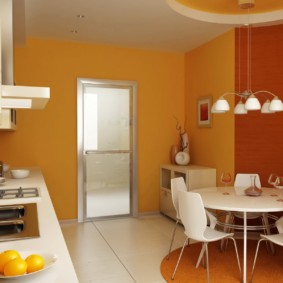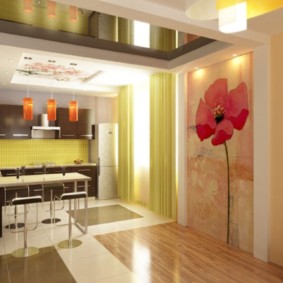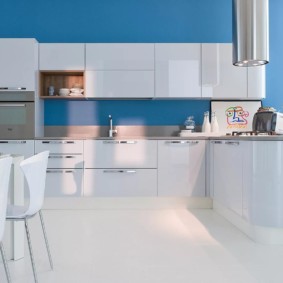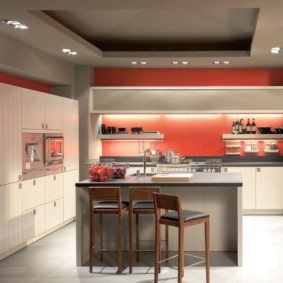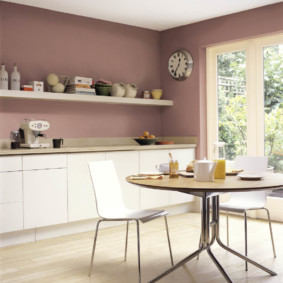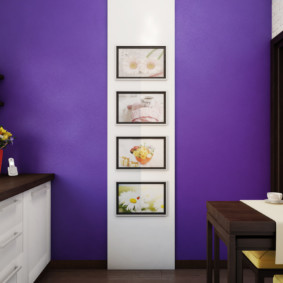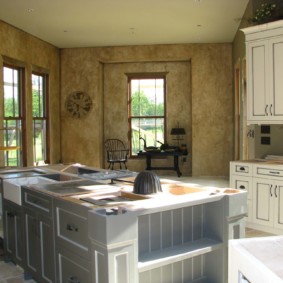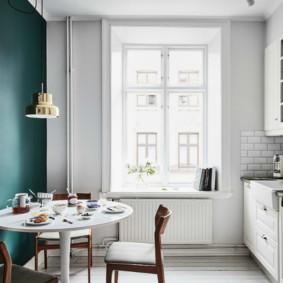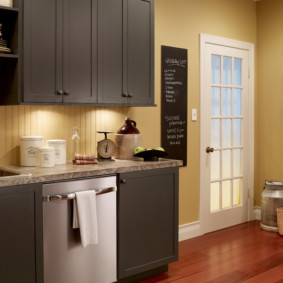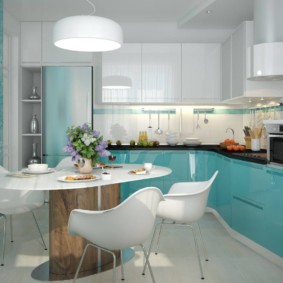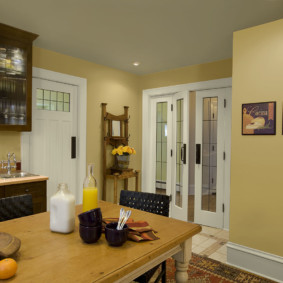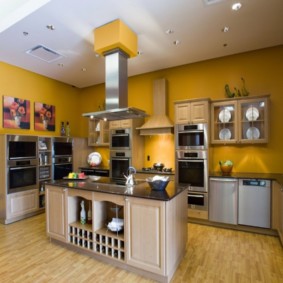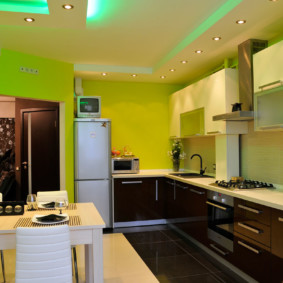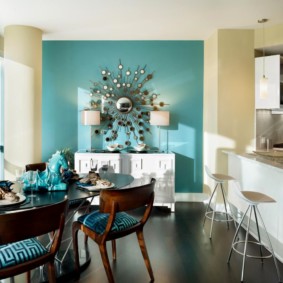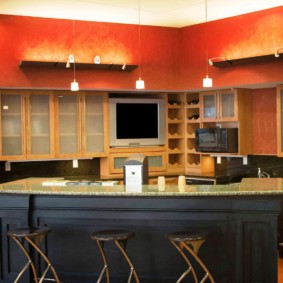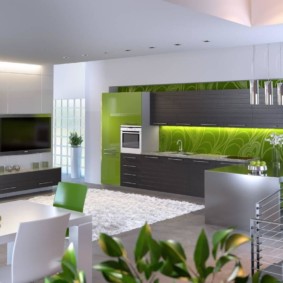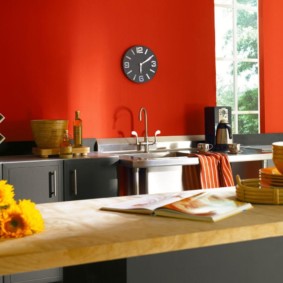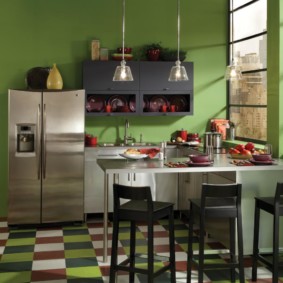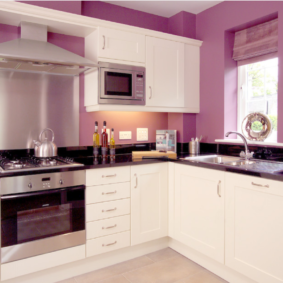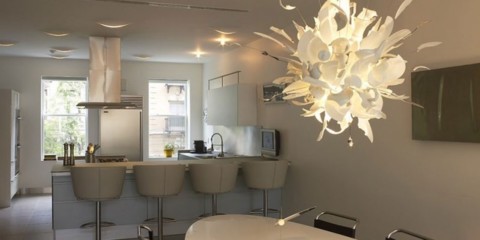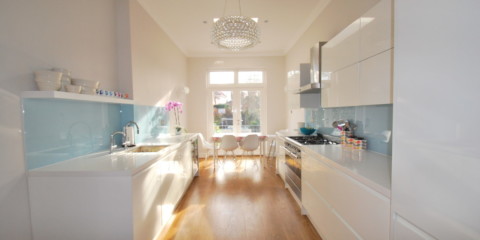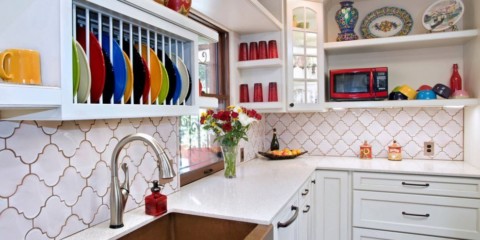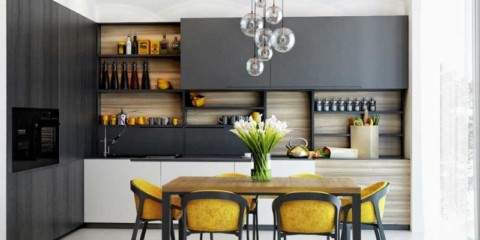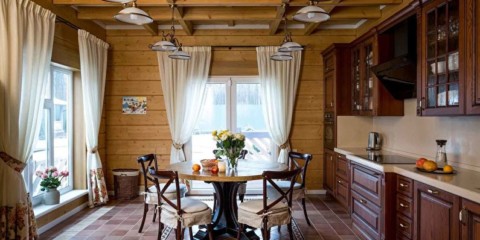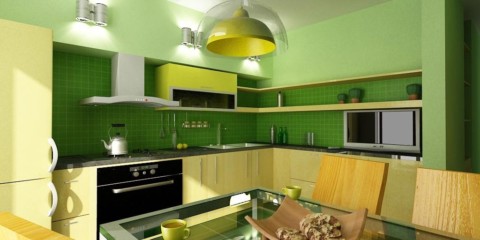 Kitchen
Choosing the right combination of colors in the interior of the kitchen
Kitchen
Choosing the right combination of colors in the interior of the kitchen
The kitchen is very different from all other rooms in the house or apartment. They not only prepare food here, but also arrange family gatherings or receive guests. We can say that the kitchen is the heart of the whole house. That is why it should look beautiful and neat, and also always be clean.
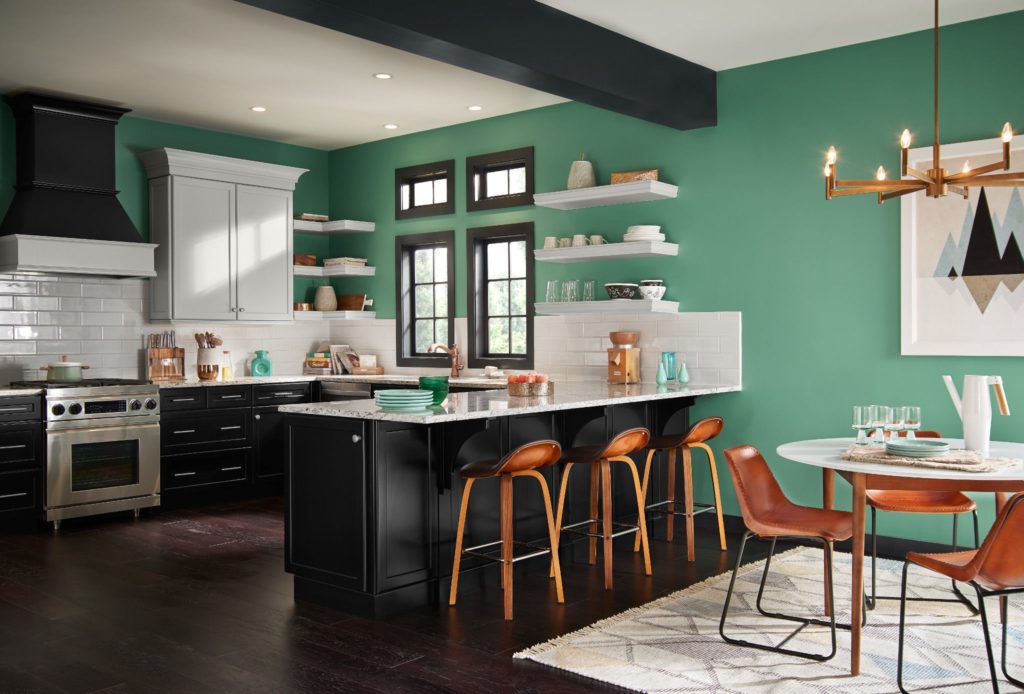
Kitchen walls have one unpleasant feature - they get dirty very quickly.
When choosing wall painting, you can embody all design fantasies, make the room bright and bright, but at the same time cozy. A huge plus for the housewives will be the simplicity and ease of cleaning. Painted surfaces are easy to clean - just wipe the stain with a sponge and a drop of detergent.
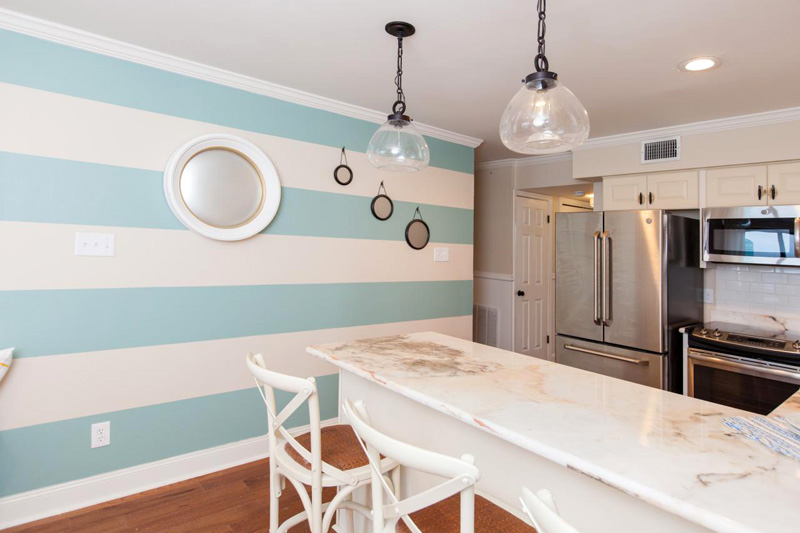
Every housewife dreams of easy cleaning of kitchen surfaces, and washable paint for the walls of the kitchen will help her in this, as she is easily amenable to wet cleaning.
It should be noted that the painted coating after drying is of three types:
- glossy;
- matte;
- semi-glossy.
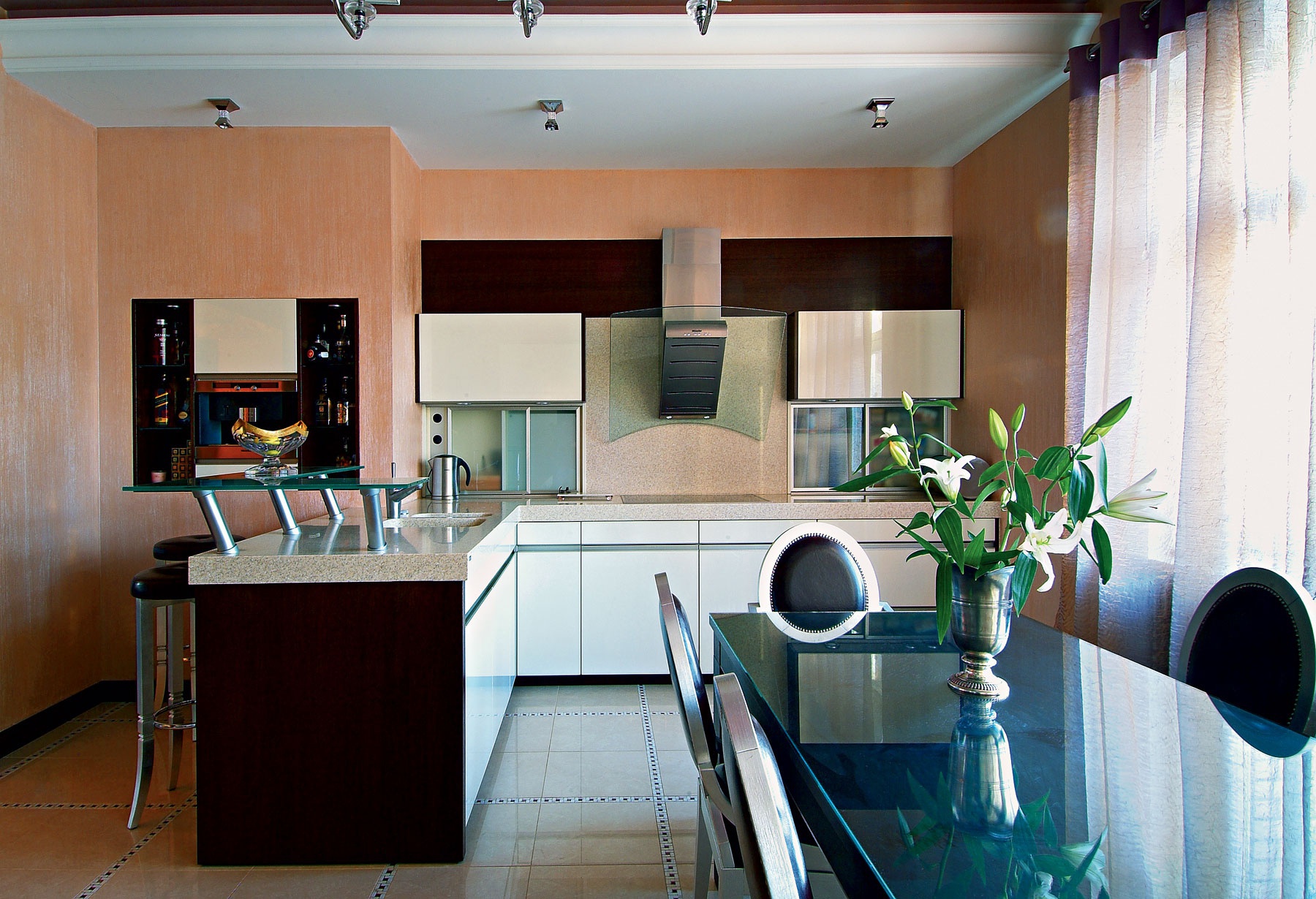
Washing paint is one of the most popular materials used in the decoration of kitchen walls.
Pros and cons of applying paint in the interior of the kitchen
Content
There are many advantages to painting walls in the kitchen, but there are also significant disadvantages.
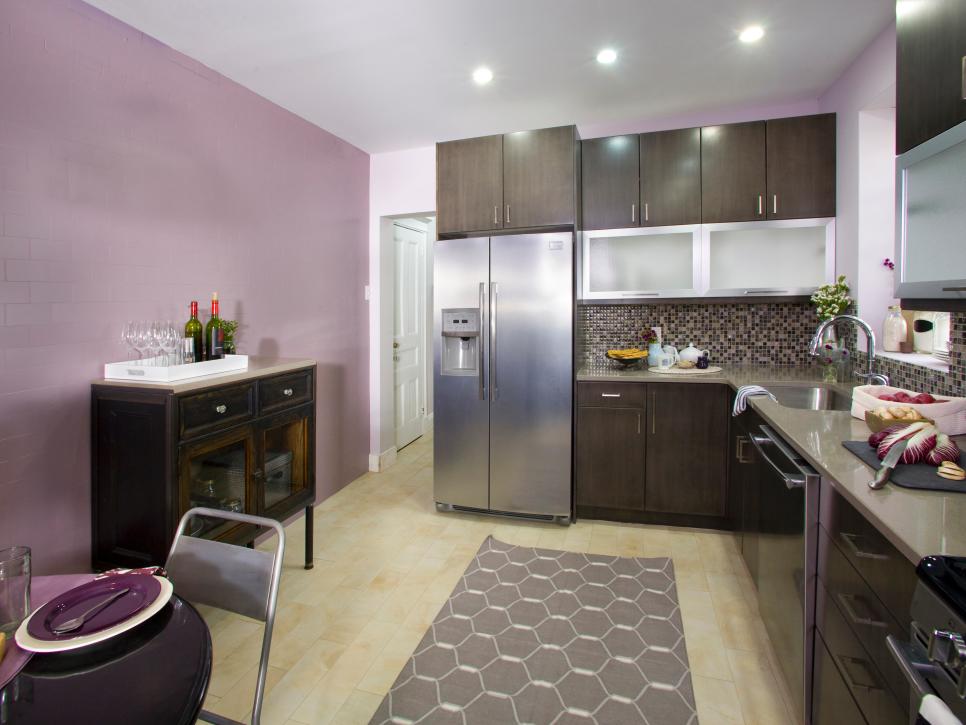
This type of paint is very easy to apply on walls, and caring for painted walls is easy.
The advantages of using paints in the interior
It’s easy to choose the right shade of color. In the stores of building and decoration materials, a large selection of colors (pigments) is currently provided, and often specialists work in these stores to help determine the choice of the right color and paint over.
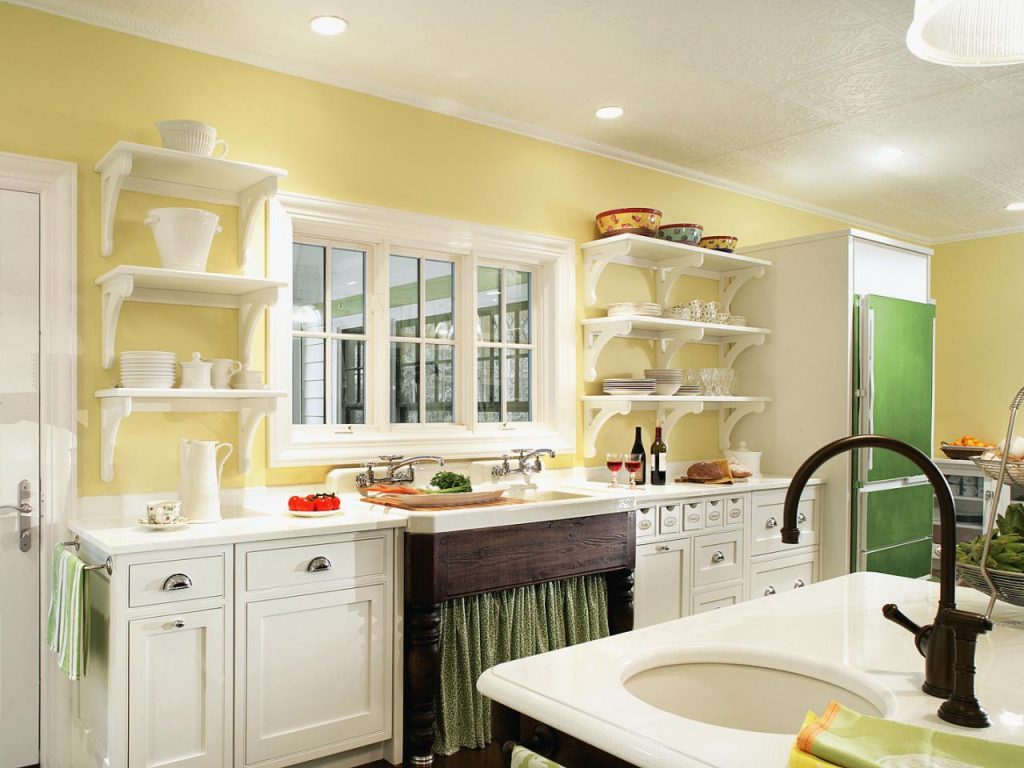
Washable paint is ideal for application on "wallpaper for painting."
- You can periodically refresh the color of the walls by tinting them yourself.
- When choosing high-quality paint, walls can be washed even with aggressive detergents.
- If you wish, you can always repaint the walls yourself in a different color.
- Good paint withstands temperature extremes, high humidity, which is important for the kitchen.
- Painting walls is much easier than sticking wallpaper.
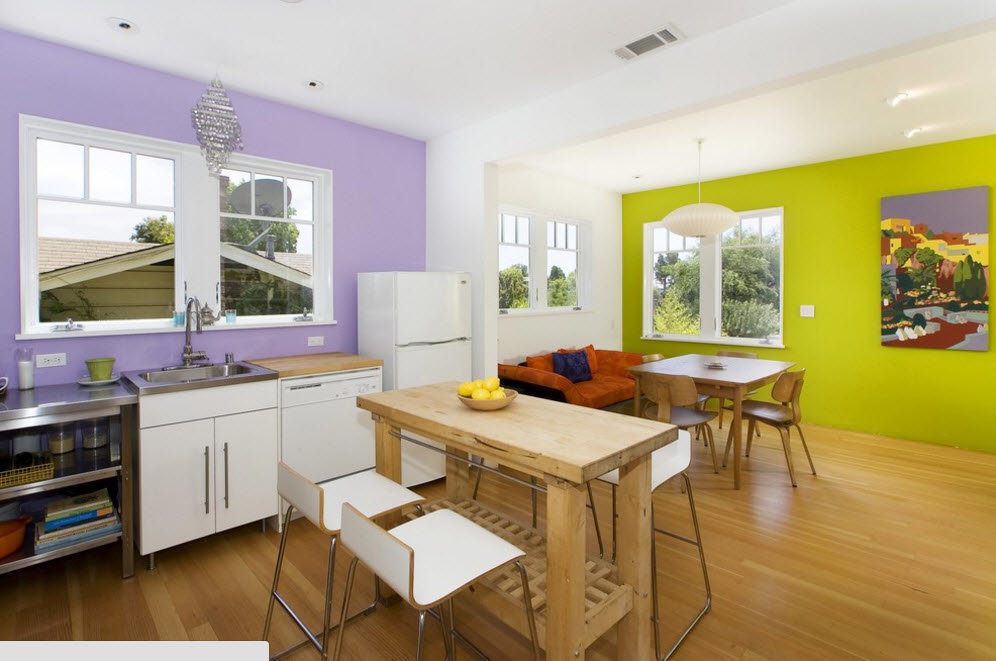
It can also be applied to plaster, concrete, drywall, brick or wood.
In the case of wallpapering, you will have to deal with the edges of the joints, adjust the pattern.
- In the event of any defects on the coating, just tint the damaged area. All walls are not repainted.
- Easy painting not only the walls in the kitchen, but also the ceilings, as well as complex decorative structures. For example, arches or curly openings.
- If there are pets in the house, then they will not be able to spoil the painted wall by scratching it.
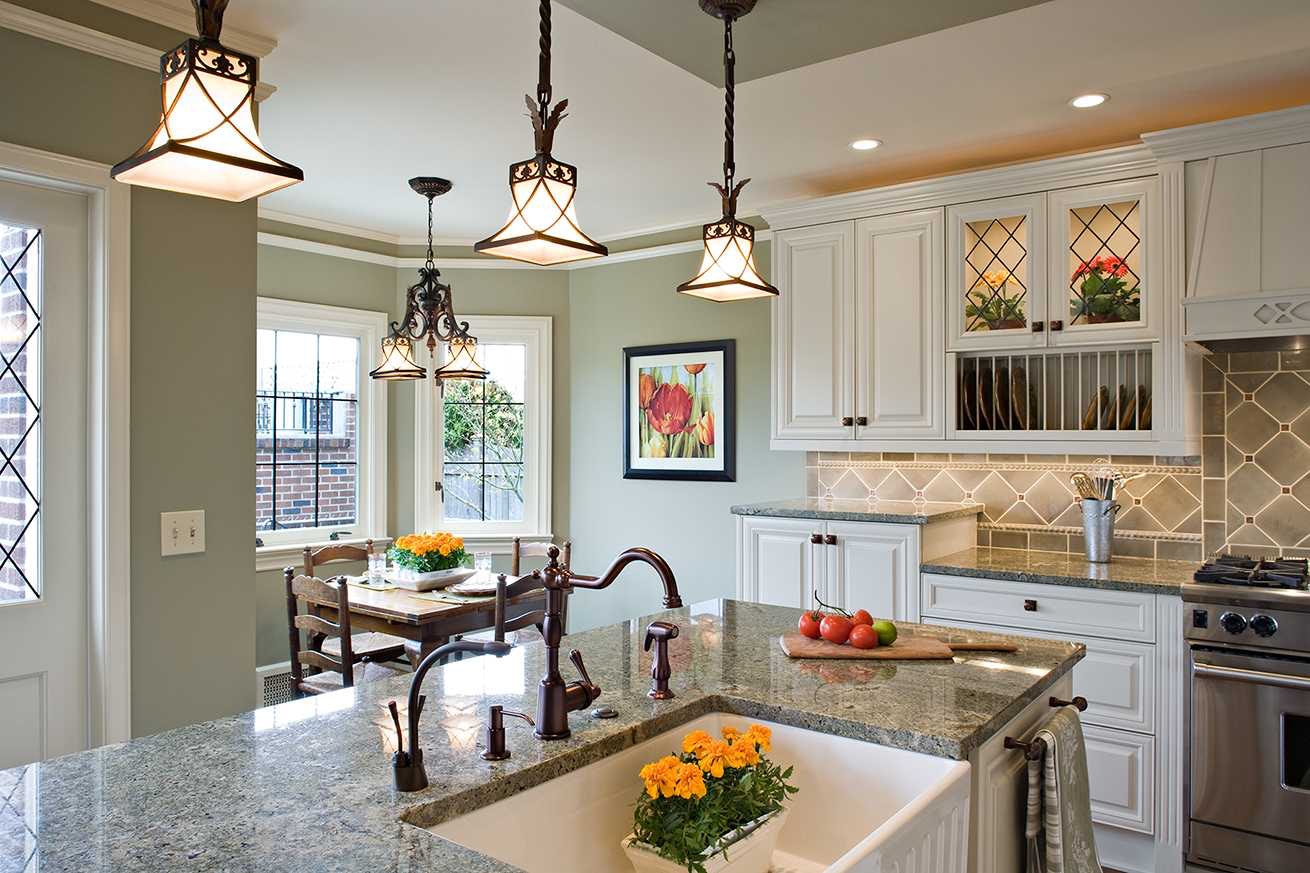
There are many washable paints: acrylic, silicone, latex.
Cons of using paints in the interior
- The walls to be painted should be perfectly even and smooth. Not a single paint will hide even small flaws, but rather emphasize them. Before painting the walls, it is better to contact specialists who will prepare the surface for painting in advance.
- Almost all types of paints have a strong enough and unpleasant odor.The room in which the walls are painted should be regularly and well ventilated, otherwise a headache and dizziness may appear from paint fumes.
- Wall washing should be done in a timely manner to prevent the painted surface from absorbing dust, droplets of fat and other impurities.
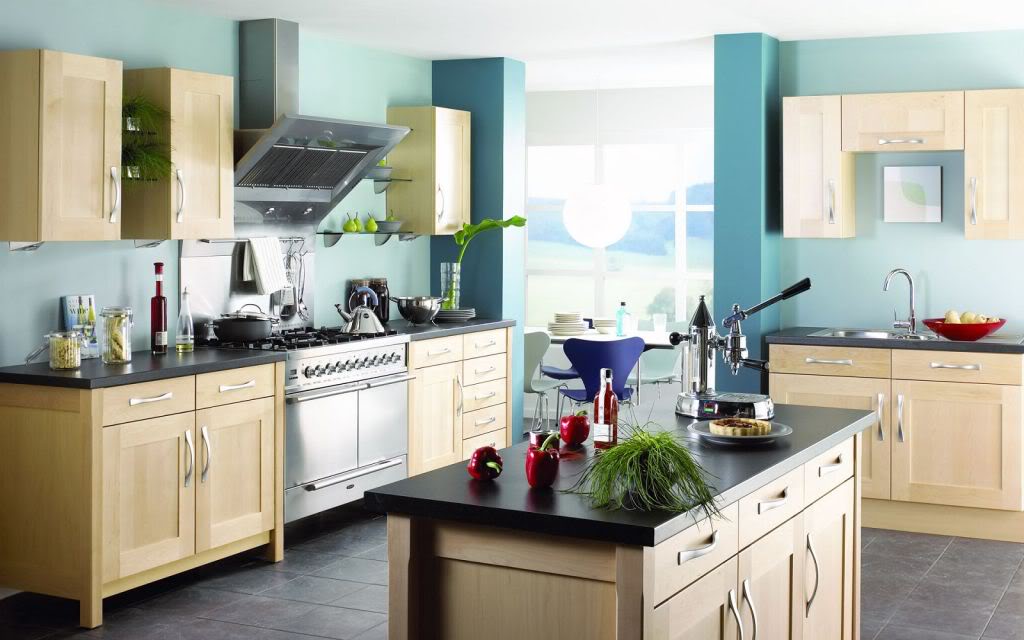
Paints are able to create various surfaces: glossy, matte, textured.
What paint to paint the walls in the kitchen
What paint to choose for the kitchen? For painting walls in the kitchen, it is best to use water-dispersion and water-based paints. It is these paints that are the most reliable and durable, and also differ in environmental friendliness and safety, including fire safety (do not ignite).
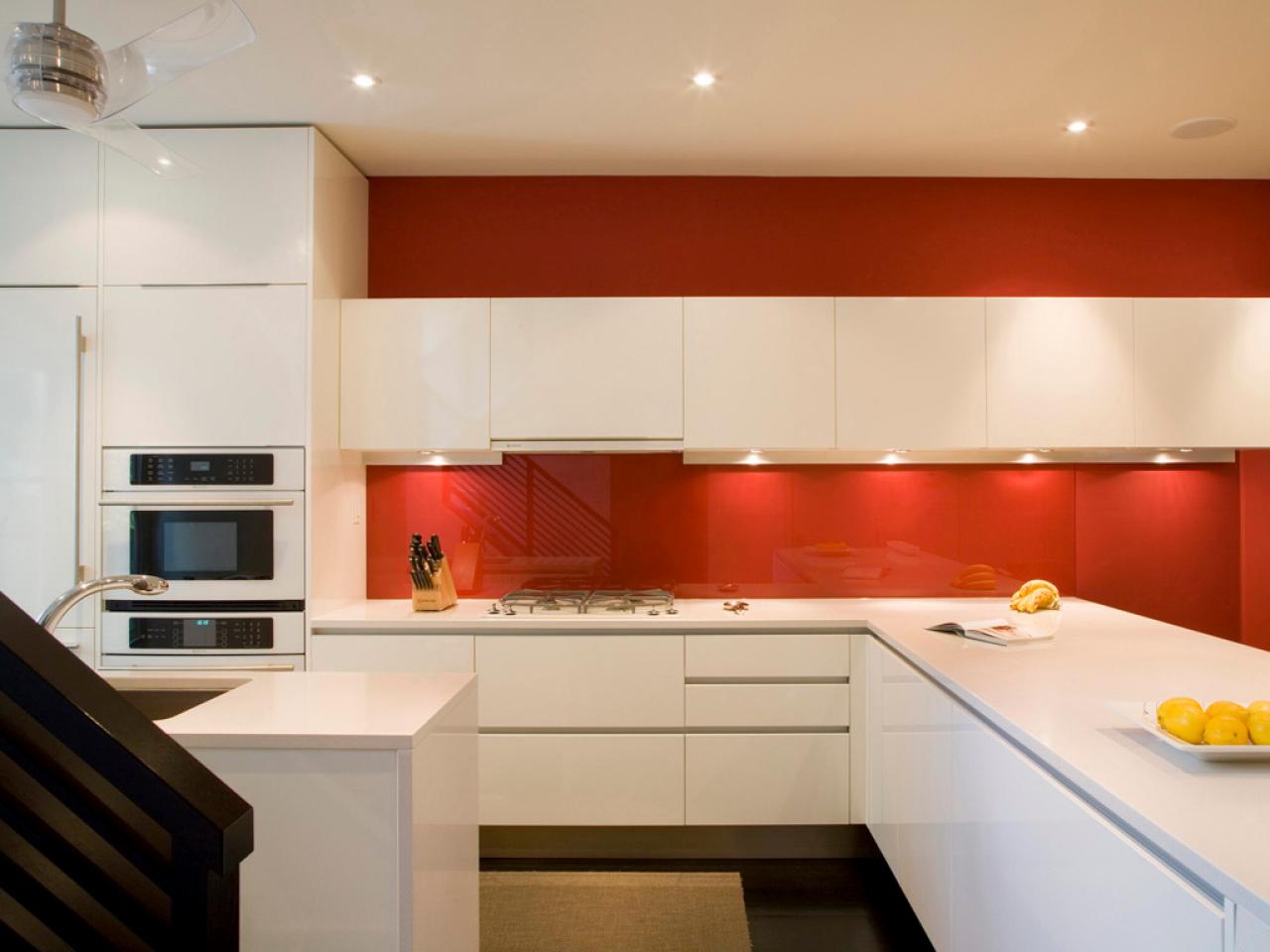
Paint allows masking small irregularities and cracks.
The basis of such a paint is water, so it will not be difficult to dilute it to the desired consistency, no solvents or special agents will be required.
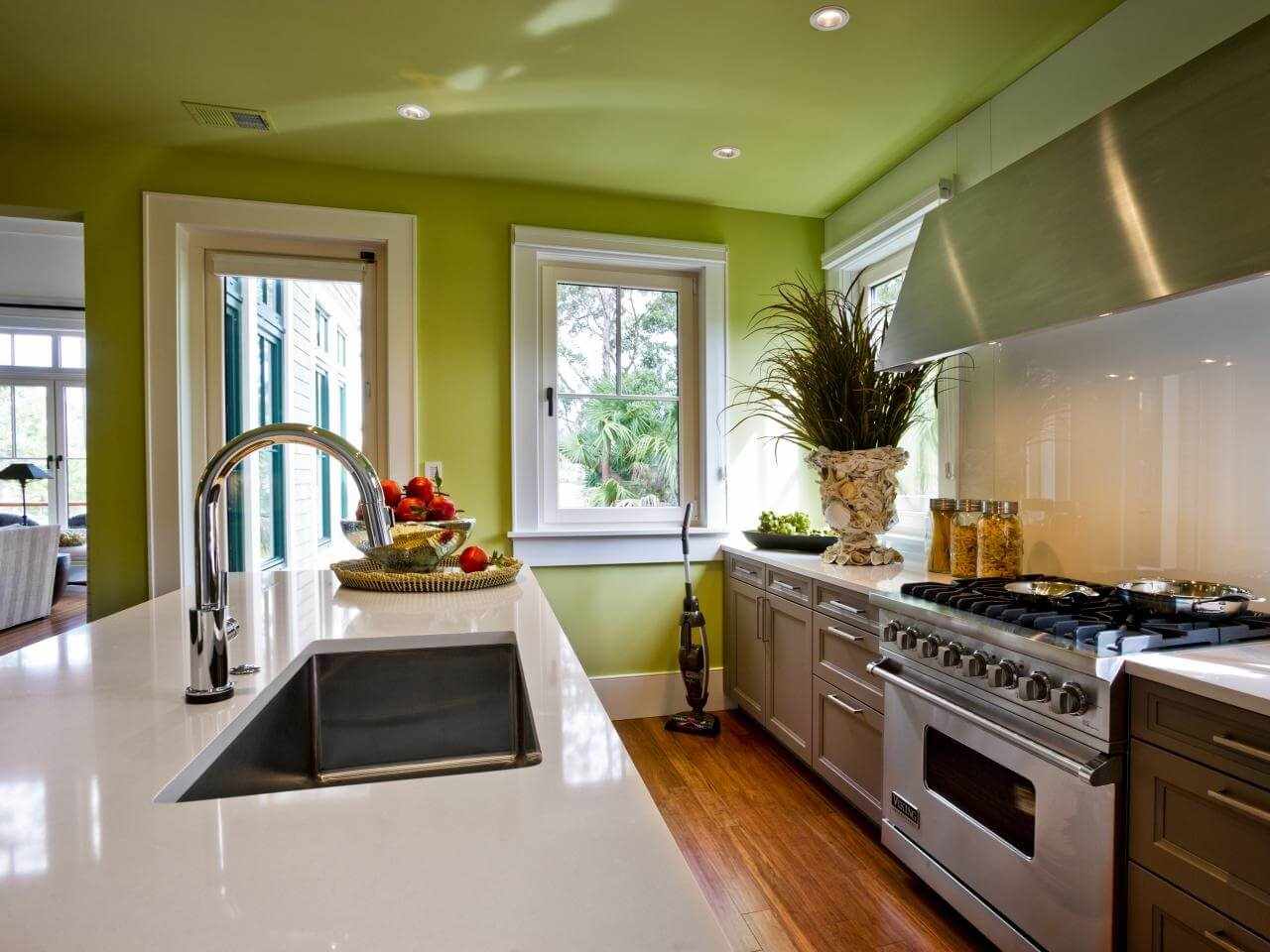
Do not save to the detriment of yourself. Too cheap paints may not be as safe as the label says.
Important! After opening the cans of paint, it needs to be mixed well.
An additional advantage in working with this paint is the absence of a sharp unpleasant odor. Water dispersion paint dries in only two hours, and the service life of such a coating is about fifteen years. During this time, it will not crack, will not peel or swell.
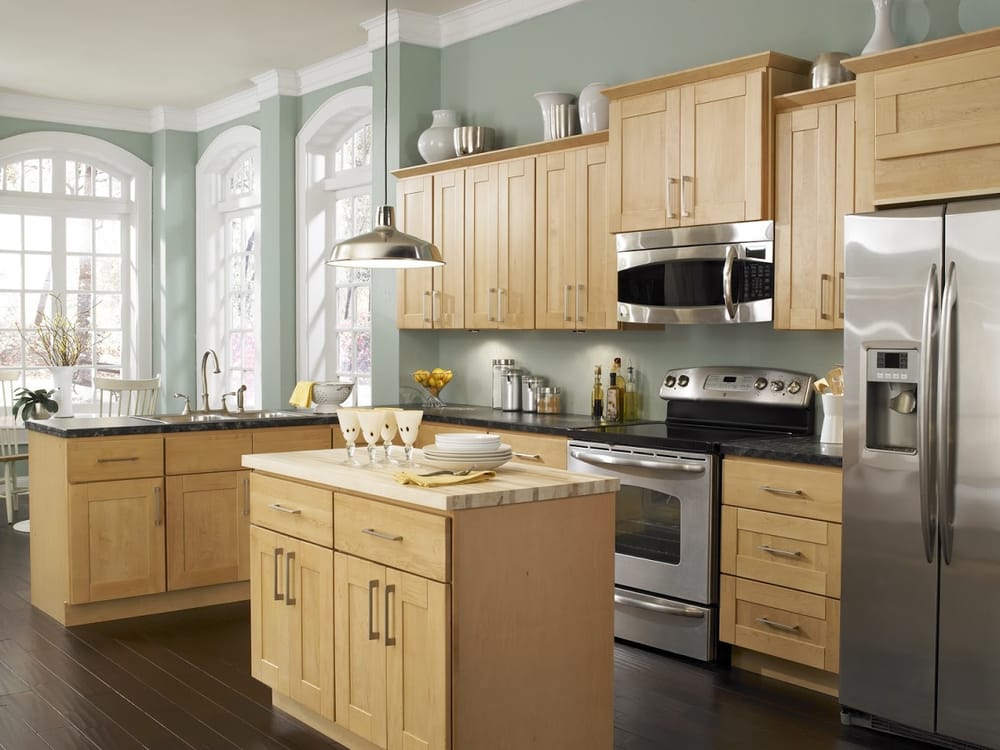
Determine in advance the type of your future wall: glossy, matte or textured. Choose the paint according to your wishes.
Water-dispersion and water-based paints are divided into three types:
- PVA;
- acrylic;
- latex.

With a careful attitude, the surface will retain its original appearance for many years.
PVA paint
The so-called PVA (polyvinyl acetate) paints have many advantages, however, they have low resistance to moisture, so they are not suitable for painting walls in the kitchen.
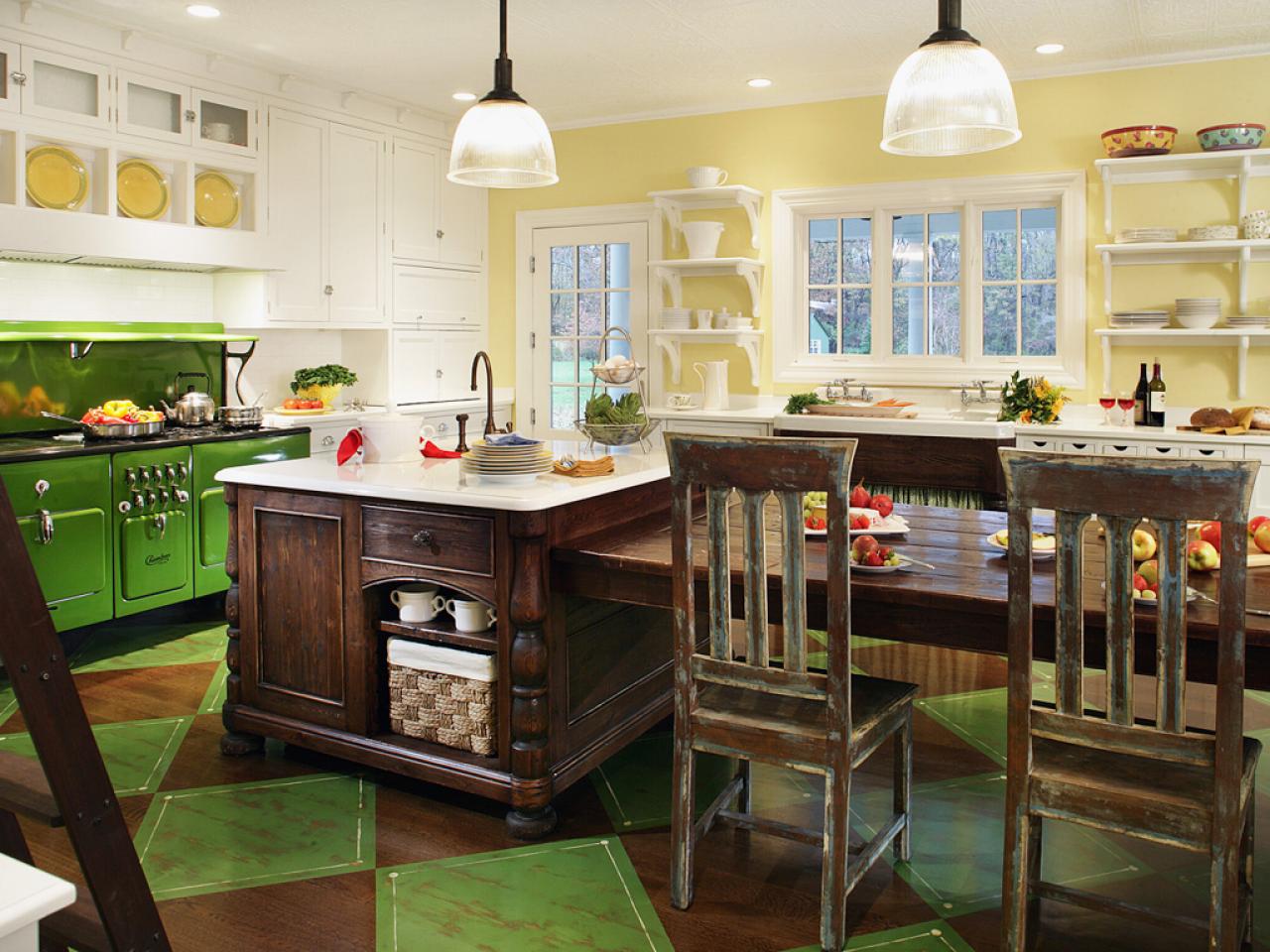
In the modern market, paints are represented in large quantities.
Acrylic paint
This is a universal finishing material that can be applied to any surface. Suitable for rooms with high humidity, prevents the formation of mold, as it forms a breathable coating. Walls covered with acrylic paint for a long time do not lose their attractive appearance, the colors remain bright and saturated, do not crack and perfectly tolerate mechanical influences. Its consumption is very economical due to elasticity and good adhesion to the surface.
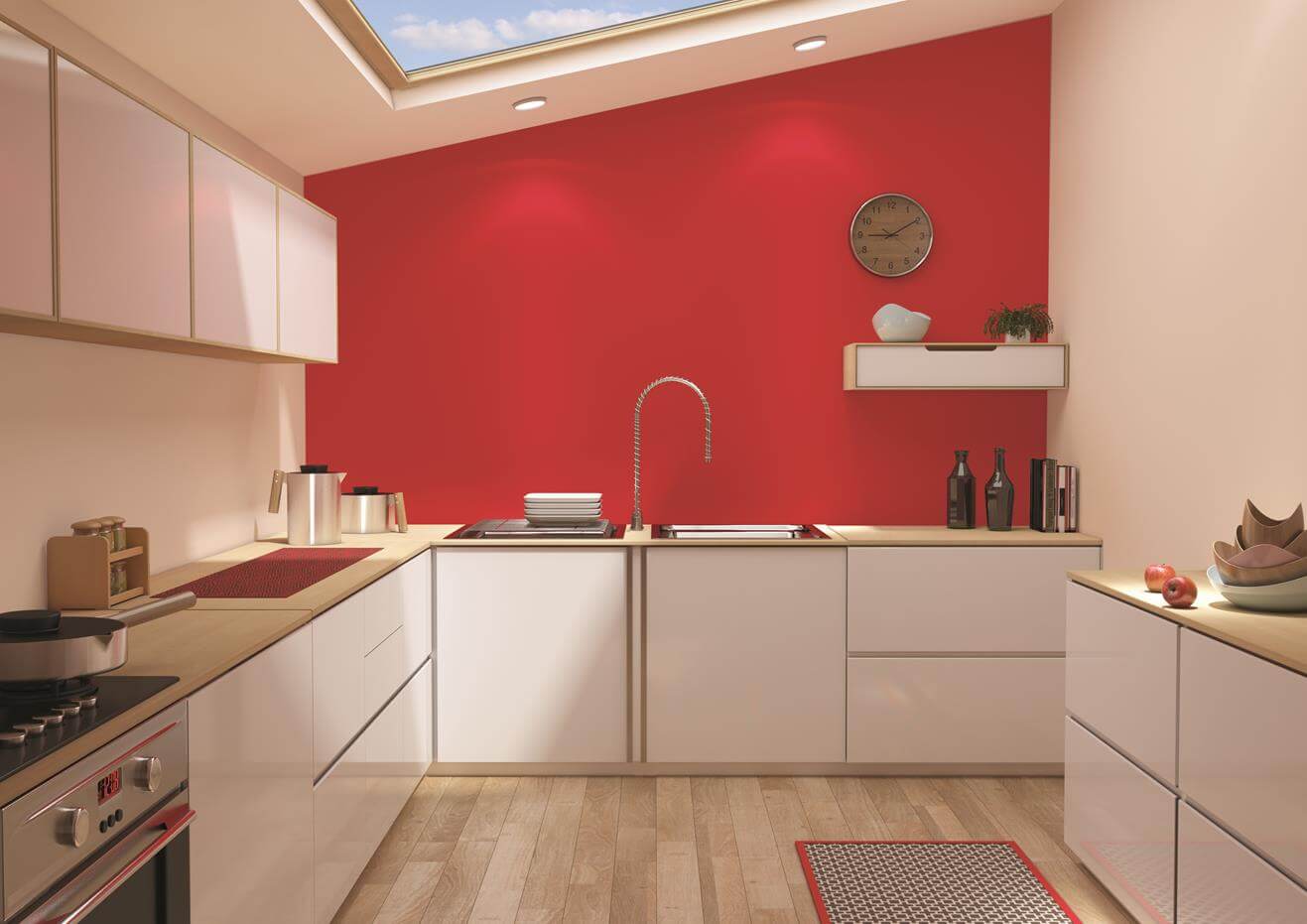
Very popular paint, which is ideal for painting wooden surfaces.
Latex paint
It is made on the basis of latex. It has good strength and moisture resistance. It is latex paint that in most cases is used in damp rooms, such as a bathroom or basement. Such paint dries quite quickly - within 30 minutes.
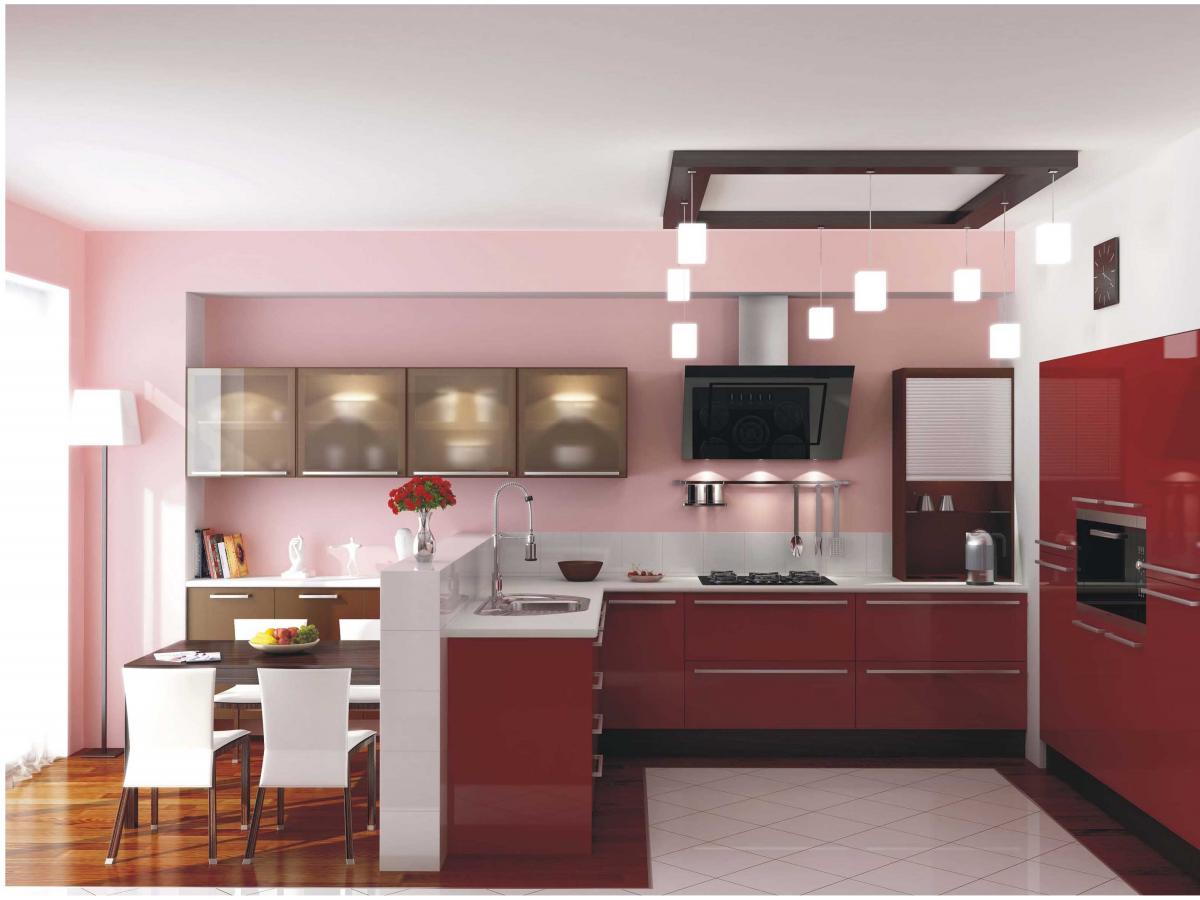
This type of paint is considered more wear-resistant, so latex paint is increasingly used for painting the kitchen area, although its price is an order of magnitude higher than acrylic.
Important! The only drawback of latex paint is that the coating that it creates quickly burns out under the influence of direct sunlight.
When choosing a water-dispersion or water-based paint, it is important to consider that their quality directly depends on five indicators.
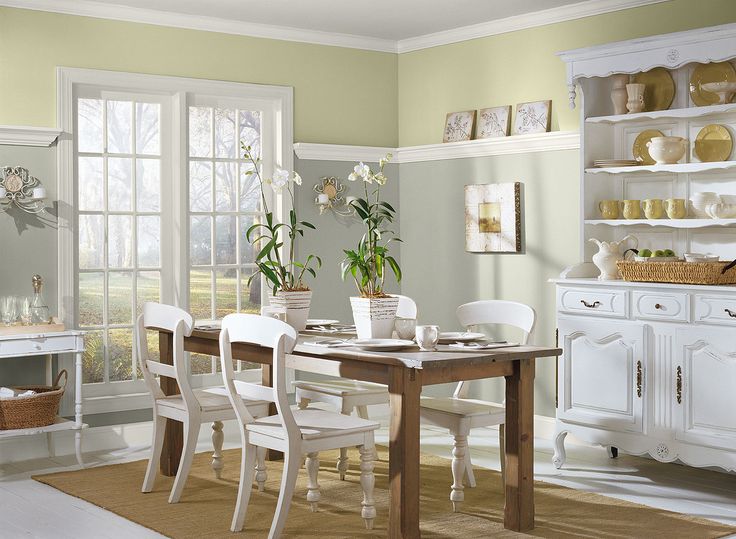
Latex-painted surfaces can be washed not only with a rag, but also with a soft-bristled brush.
- White. The whiter the paint initially, the brighter and richer the color will turn out when a coloring pigment (color) is added to it.
- Hiding power, it’s the same density. This indicator affects the consumption of paint. Ideally, 1 liter of paint should weigh 1.5 kg.
- Abrasion. This indicator affects the resistance of the coating to wet or wet abrasion.In total there are five classes of abrasion, on which it depends on whether it is possible to wash the painted surface, and also whether it is resistant to pollution. It is better to give preference to the first and second class. These are washable paints for the kitchen.
- Resistance to direct sunlight.
- Resistance to mechanical stress.
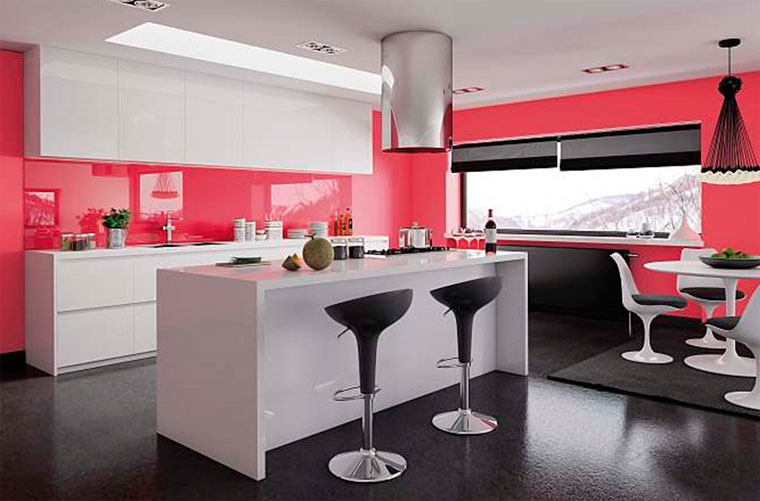
Many paints allow you to use disinfectants when cleaning, which do not impair the appearance of the surface.
Design wall painting in the kitchen - how to choose a color
The choice of color in which to paint the walls in the kitchen depends on many factors and plays a huge role. It is color that creates comfort and sets the mood for the entire room.
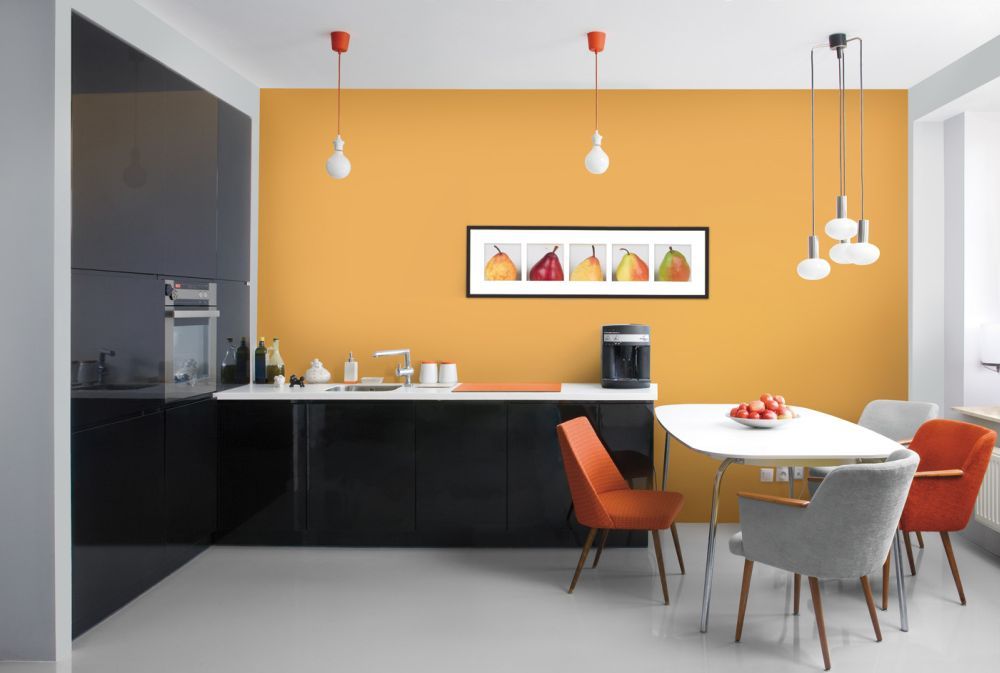
Painting the walls in the kitchen is a responsible and time-consuming task, so that it goes without a hitch, in advance you need to carefully think through everything and prepare the necessary materials.
When choosing a color palette for a future interior, there are several rules:
- should take into account the basic style of the interior, furniture;
- color brightness directly depends on the illumination of the kitchen;
- if the kitchen is small, light colors will help to visually increase the space and expand it;
- in large rooms it is undesirable to use too light shades, they will make the kitchen boring and faceless.
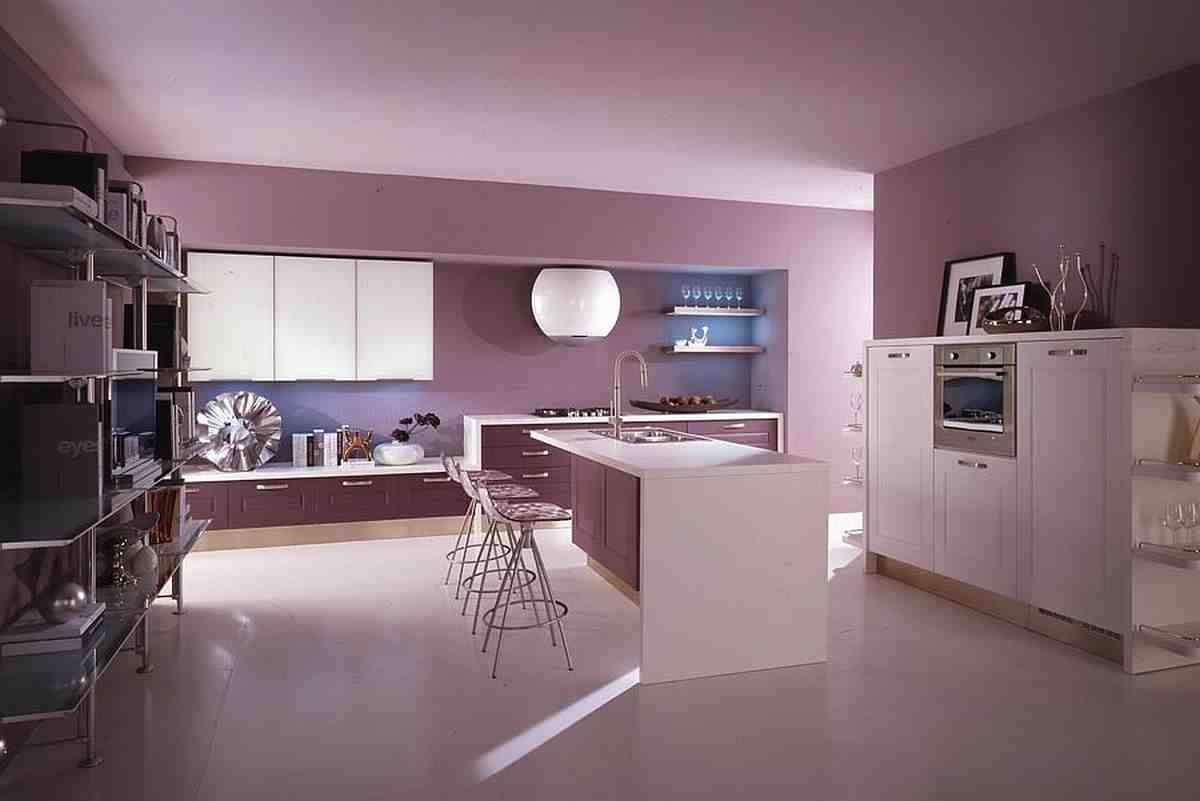
Do not forget to take into account the fact that the color of the paint shown in the picture, and the one that will be on your wall, can be different from each other by one or two tones.
Important! Psychologists do not recommend choosing too bright colors for painting walls if the room is small and a lot of time is spent in it.
In case of insufficient lighting of the kitchen, preference should be given to soft warm shades - yellow, peach, beige. If the room, on the contrary, is too bright, do not paint the walls in too saturated colors. Not only can they change the shade from excess light, but they will also look even brighter.
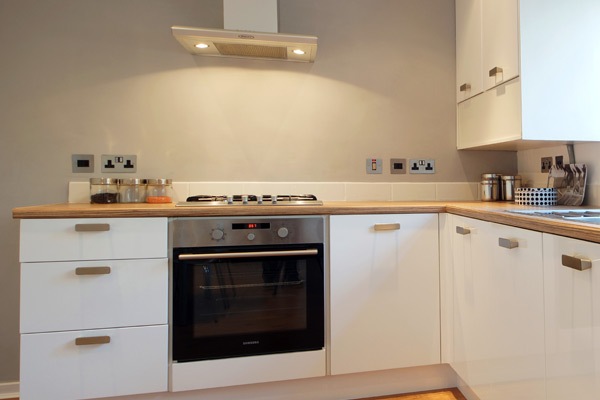
Despite the special resistance of washable paint, in the first month with a painted surface, you need to do it very carefully.
Additional information: When choosing the color of the walls in the kitchen, you can give your preference to green or red. For example, light green or pistachio. will contribute to good digestion, as well as cheer up. Red stimulates appetite.
Combinations of colors for the kitchen
Whether the kitchen is cozy and stylish depends on a combination of colors.
Do not rush to choose the color of paint for the walls, for a start you need to not only decide on the main, prevailing color, but also select a few more different colors and their shades to achieve the completeness of the image.
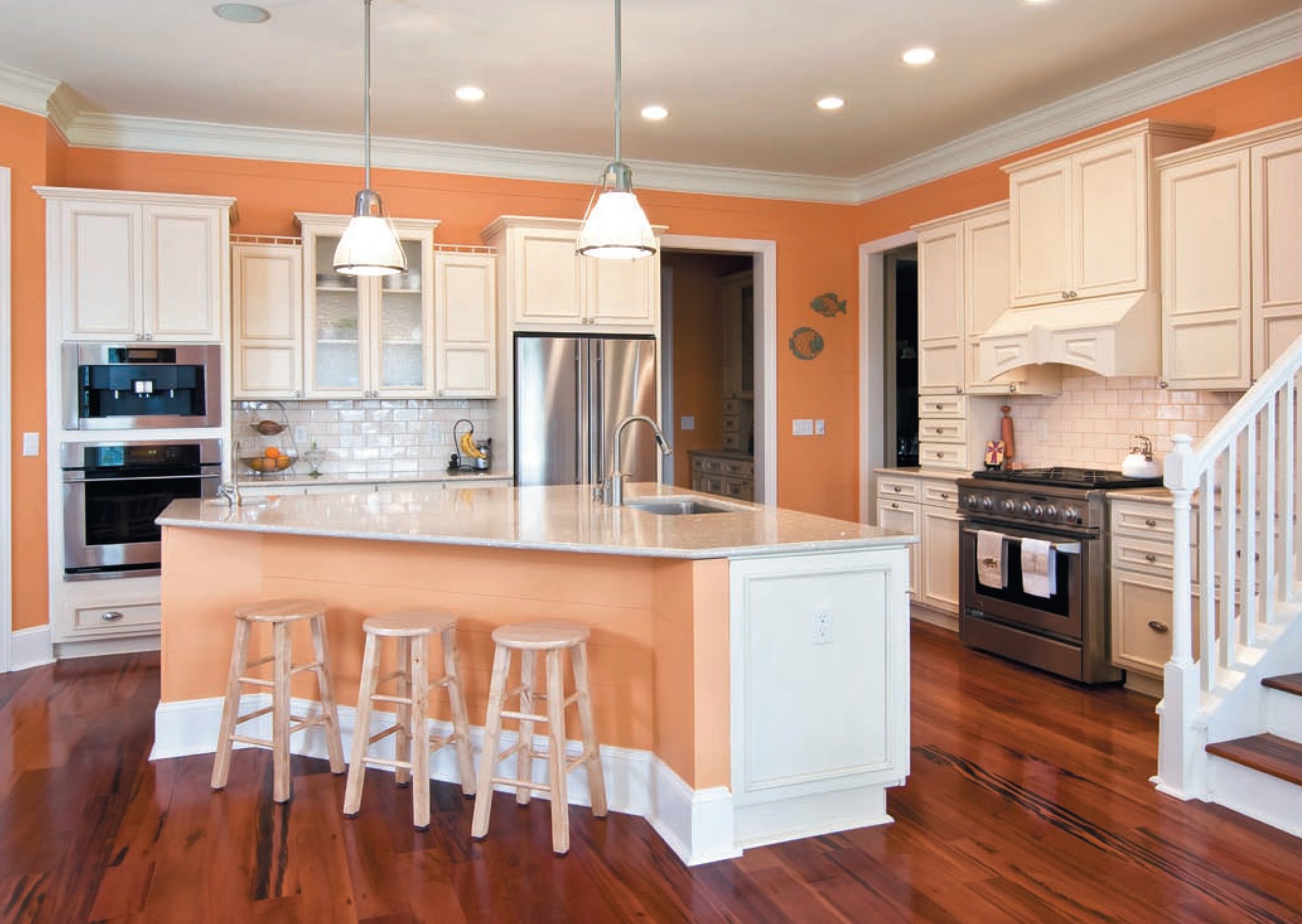
In this example, you can clearly see how the paint ideally matches the color of the headset.
There are several rules for a successful combination of colors in the interior of the kitchen.
- Combine no more than five colors at a time.
The main, basic, components of the color scheme of the kitchen are the color of the floor, walls, kitchen. It is these colors that will prevail in the interior and, most likely, will be natural and close to each other. You can add just a couple of bright additional shades, and the interior will look very different, more stylish and beautiful.
Important! Very bright and dark colors should not exceed ten percent of the total color gamut of the space.
- The color scheme should correspond to the overall style of the kitchen.
If the general style of the interior has already been selected, then choosing a color palette is much easier.
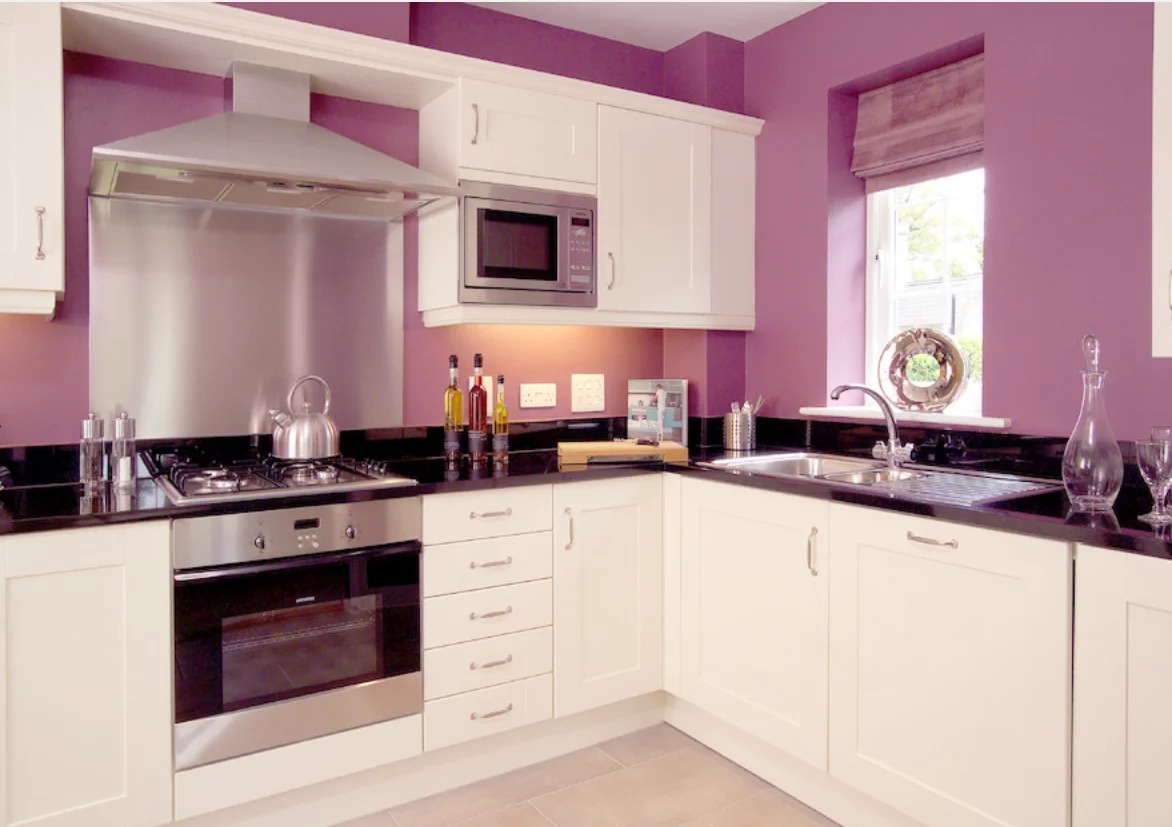
The appearance of the kitchen area and the mood of its residents directly depend on the correctly selected paint.
There are several interior styles:
- Classic style. Assumes the use of muted deep shades. For the interior in the classical style, the use of bright accents is not peculiar, but the use of contrasts is allowed.
- European style. This may include styles such as Provence, Shabby Chic or French style.The interior in a European style is dominated by pastel, muted colors.
- Scandinavian style. The main shades in this style are light and natural. There are many bright accents.
- Loft. It involves the use of dark muted tones in the interior, most often with the addition of brick, shades of concrete, metal and wood.
- Retro. Direction for those who prefer bright and saturated colors.
- Minimalistic. This style is based on shades of natural materials such as the color of sand, grass, stones or wood.
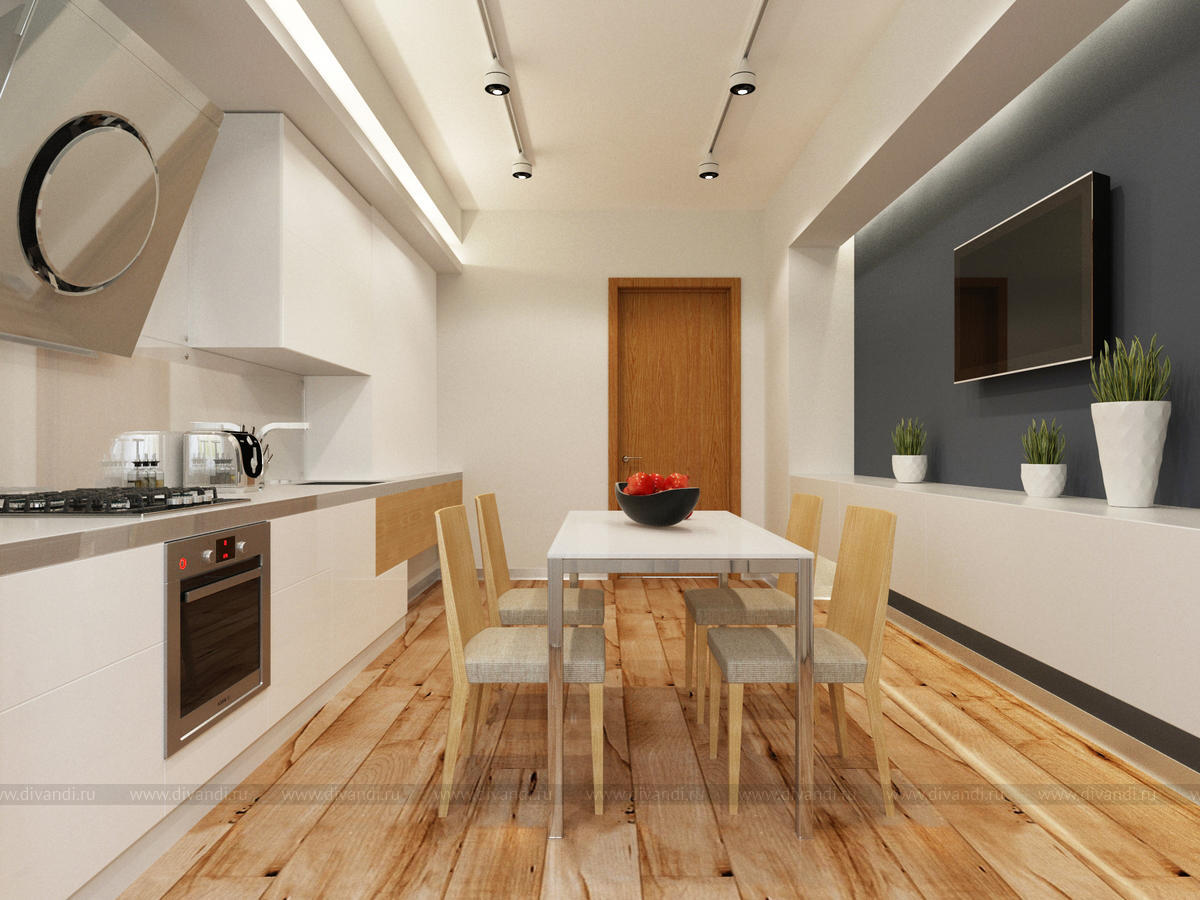
Colors are natural and unobtrusive.
- Consider the level of illumination of the room.
If the kitchen does not have enough windows, or they face the north side, then fill the lack of light will help make up for such colors as yellow, peach, pink. These colors will fill the room not only with light, but also with heat. It is necessary to exclude the use of cold shades, for example, blue, blue, gray, violet, since in a dim room they will look cold and unfriendly.
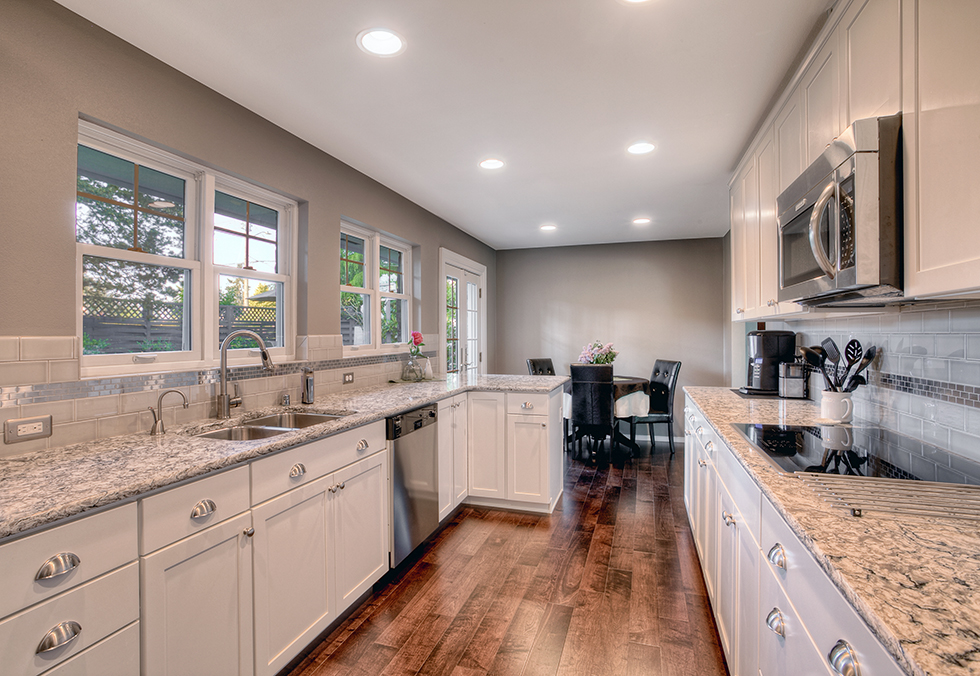
Choose a washable paint in accordance with all the rules, paint with special zeal and patience, so that in the end you get perfectly painted walls.
In rooms with bright lighting and many windows, on the contrary, it is worth using cool colors. They will look fresh and interesting. You should not use bright warm shades in an overly lit kitchen, this can create a feeling of stuffiness, as well as cause migraine attacks.
- Consider the size of the kitchen
If the kitchen is small, then you should give your choice in favor of bright colors. For example, white, light blue or light beige will visually increase the space, as well as add light. To white kitchen does not look boring and faceless, you can add bright accents.
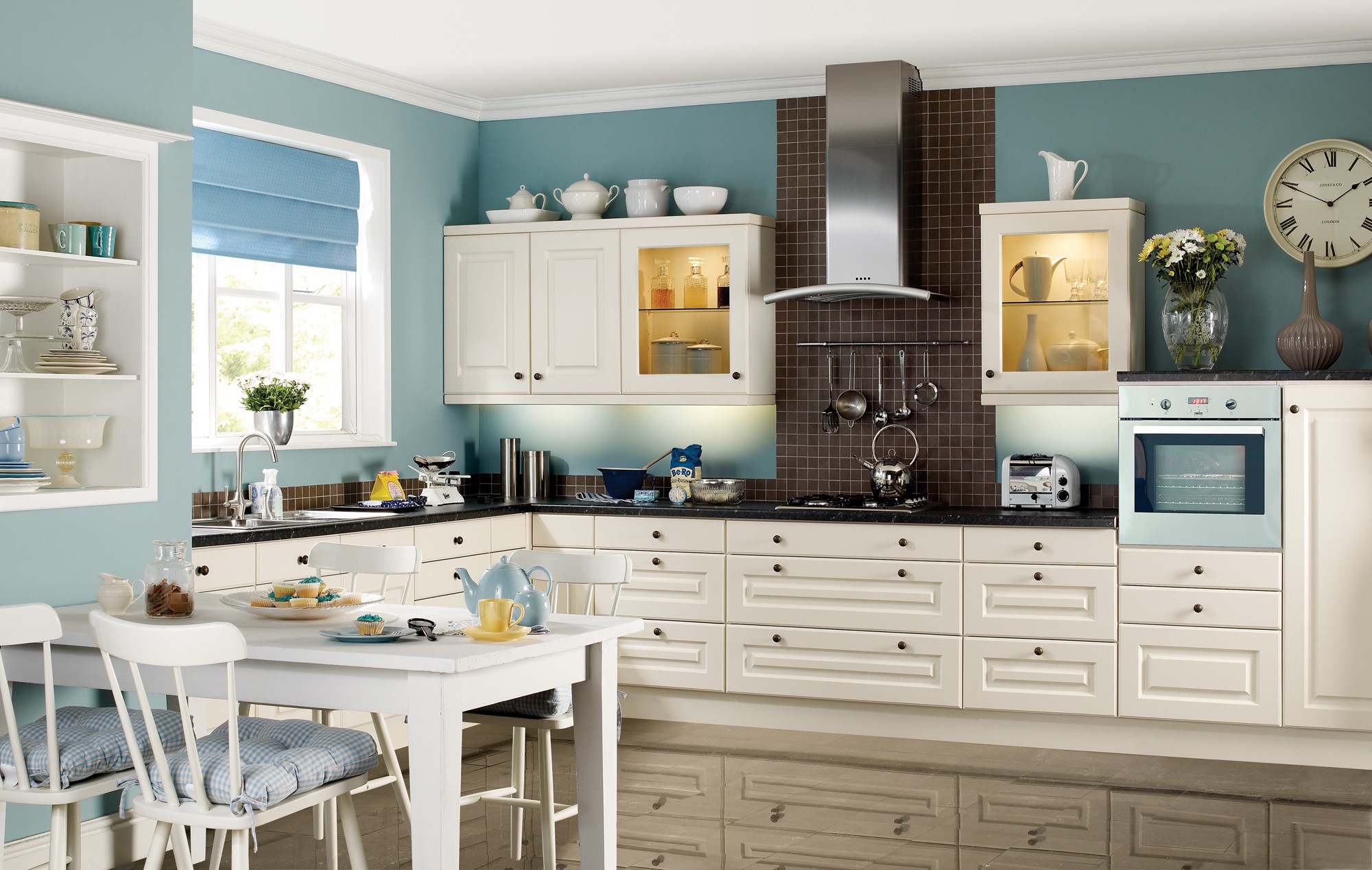
Consult with friends, read reviews or trust your instinct, and then you will not have to regret repairing the kitchen with washable paint.
In choosing a color palette for future kitchens, the main thing is to focus on your own preferences and tastes, then the result will certainly be successful, and most importantly, it will delight you every day!
VIDEO: Types of colors for the kitchen.
